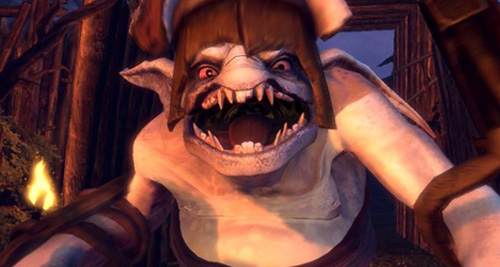
Earlier today I posted a story about Fable creator, Peter Moluneux and how bad he felt about the showing of his latest game, Fable: The Journey due to the poor reception it received. Turns out his feelings of woe don’t stop there as Gamasutra found out. Moluneux told them how ashamed he was at the ‘weak’ scores of Fable III and how it didn’t reach the five million units sales goal Lionhead Studios had predicted. And much like his reasons for Fable: The Journey, the third game suffer because of a short development cycle.
“The game came together very late. That is one of the things that we’re changing; that is just such an old school way of working. That being said, I still think it was a good game! I just don’t think it was a great game that took us to 5 million units. I know I probably should say it’s a great game just respective of whatever it was, but the Metacritic score was sort of low-’80s. I think I’m pretty ashamed of that, to be honest, and I take that on my own shoulders, not the team’s shoulders.”
It’s highly commendable for a veteran games designer like himself to take all the blame and plays into another discussion as to whether games should be accredited to an individual like movies do. Should the next full Fable game be called Peter Molyneux presents Fable IV? If he’s willing to burden the hate if it doesn’t live up to par, then maybe it should.
Back to the Gamasutra talk and Molyneux tried to add a little bit of positive spin saying “[Fable III] still sold millions and millions of units, and it’s probably going to net out, with the PC version, closer to the 5 million than perhaps you would think; but it’s not the dream. It didn’t end up being the game that I dreamed it would be, because I thought the mechanic of the ruling section were really good ideas. I thought they were good ideas, but we just didn’t have time to exploit those ideas fully.” It sadly didn’t end up being the game fans dreamt about either. I wanted to love Fable III, I really did and to begin with, I did. There are still some brilliant ideas and great moments but a few to many duff ones too. Like the latter half of the game where you’re the King or Queen which didn’t really do anything other than frustrate. Again, neat idea but awkward execution.
With a franchise like Fable and a company like Lionhead with it’s quirky style and humour, there’s certain expectations that come to mind when playing. Fart jokes for example. But Molyneux hates the idea gamers approach his games with preconceived ideas : “I hate the fact that people know what to expect from something like Lionhead,” he said. “‘We know what Fable‘s going to be; we know what’s coming next from Lionhead.’ I hate that idea. We should, again, double down on freshness and originality without sacrificing – because often originality can sacrifice quality – without sacrificing quality.”
I’m all for innovation but there is some value in keeping a certain formula. In the case of Fable, its stories, characters and utterly British sensibilities are what make it great and what I’ve come to expect from a studio like Lionhead and wouldn’t view this as a negative. Molyneux went on to reiterate how he and the team have learned a number of lessons from the criticisms of Fable III and that their working habits have changed accordingly. Hopefully not too much however. I wouldn’t want Fable IV being drastically different to III, just better.





